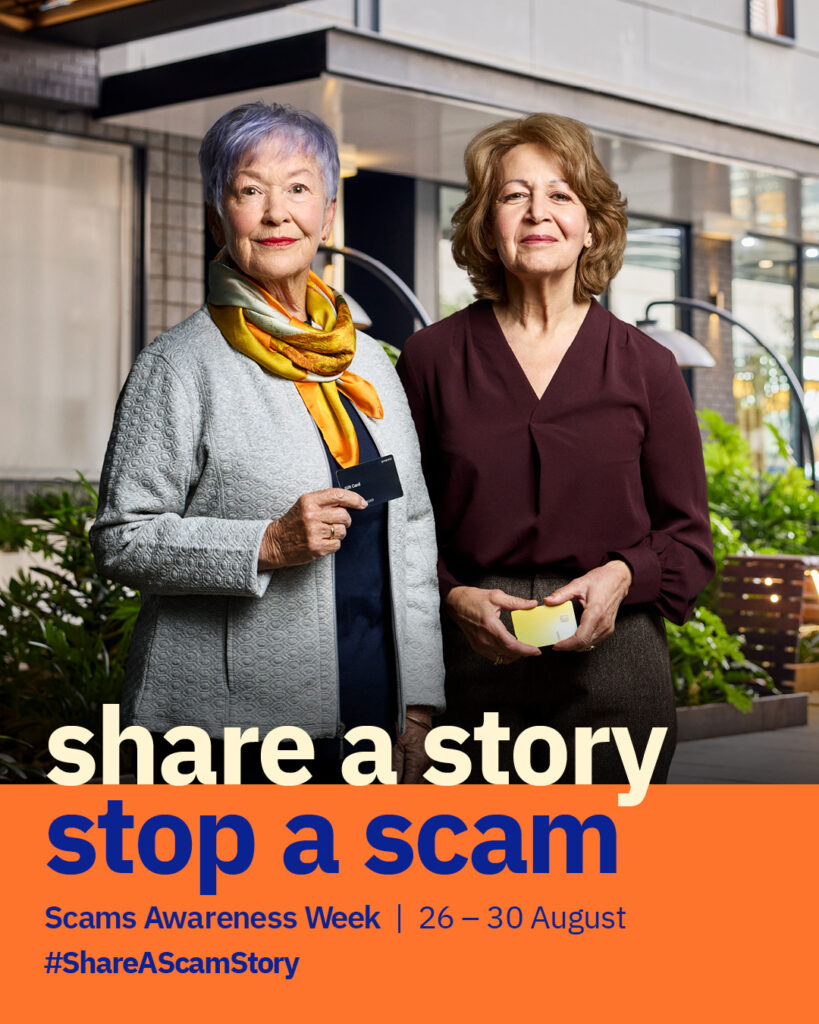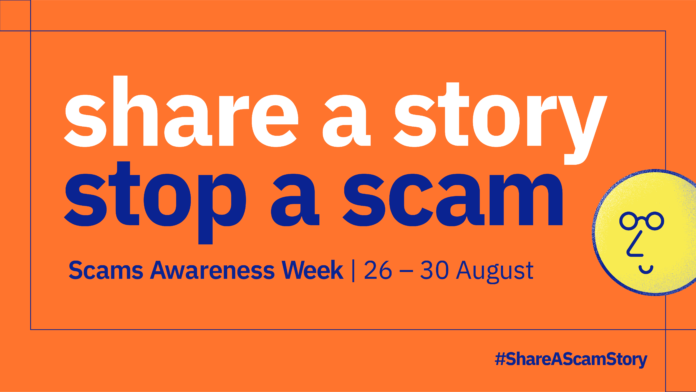During Scams Awareness Week 2024, the spotlight is on empowering Australians to combat scams by sharing personal experiences.
The campaign, themed “Share a Story, Stop a Scam,” emphasizes the critical role storytelling plays in preventing scams and supporting victims.
Understanding the Impact of Scams
Scammers are deceitful criminals who exploit victims’ emotions, often inducing feelings of shame, guilt, and distrust. They expertly manipulate situations where victims are distracted or stressed, leading to significant emotional and financial damage. By isolating victims from their support networks, scammers create a dependency that makes it harder for individuals to seek help. This isolation is a major reason many scams go unreported.
The Importance of Sharing Stories
Nearly everyone has encountered a scam at some point. By discussing these experiences, we can prevent others from falling into similar traps. Sharing your story with friends, family, or online communities can raise awareness and help protect others from losing money or personal information to scammers. The more stories shared, the more equipped we become to resist scams.

How to Share Your Scam Experience
To join the fight against scams, post your experiences on social media using the hashtag #ShareAScamStory. Engage in conversations with those around you by asking if they’ve ever been scammed, how they avoided a scam, or what they learned from the experience. Dialogue about these topics can break the cycle of silence that scammers rely on.
Identifying and Avoiding Scams
Consumers are encouraged to “Stop, Check, Report”:
- Stop: If unsure, do not give out money or personal information. Hang up or delete suspicious communications.
- Check: Verify claims by contacting organizations directly through official channels.
- Report: Report scams to Scamwatch.gov.au and stay informed on current scam alerts and advice.
Support for Scam Victims
Scammers thrive on secrecy, but reaching out for support can aid in recovery and prevention. The National Anti-Scam Centre and other support agencies understand the trauma of scams and are ready to assist. If affected, contact your bank immediately to halt transactions, and reach out to IDCARE for guidance on protecting your identity. For financial struggles, consult a financial counsellor through Moneysmart’s services. Emotional support is also available through Lifeline and Beyond Blue.
Reporting Scams and Collaborative Efforts
Reporting scams is crucial. Not only does it help authorities disrupt fraudulent activities, but it also protects others. Your reports enable the National Anti-Scam Centre to analyze scam patterns and collaborate with industry and law enforcement to combat these crimes. Reports can be made anonymously or on behalf of others, and reporting to the platforms where scams are encountered can lead to the removal of harmful content.
By banding together, individuals, businesses, and government agencies can develop innovative solutions to counteract scams. While some consumers may still fall victim, a united effort can significantly reduce the impact of scams across the nation. Let’s work collectively to safeguard our communities and stop scammers in their tracks.
Visit ScamWatch for more information.
Become an Oz ScamWatcher




